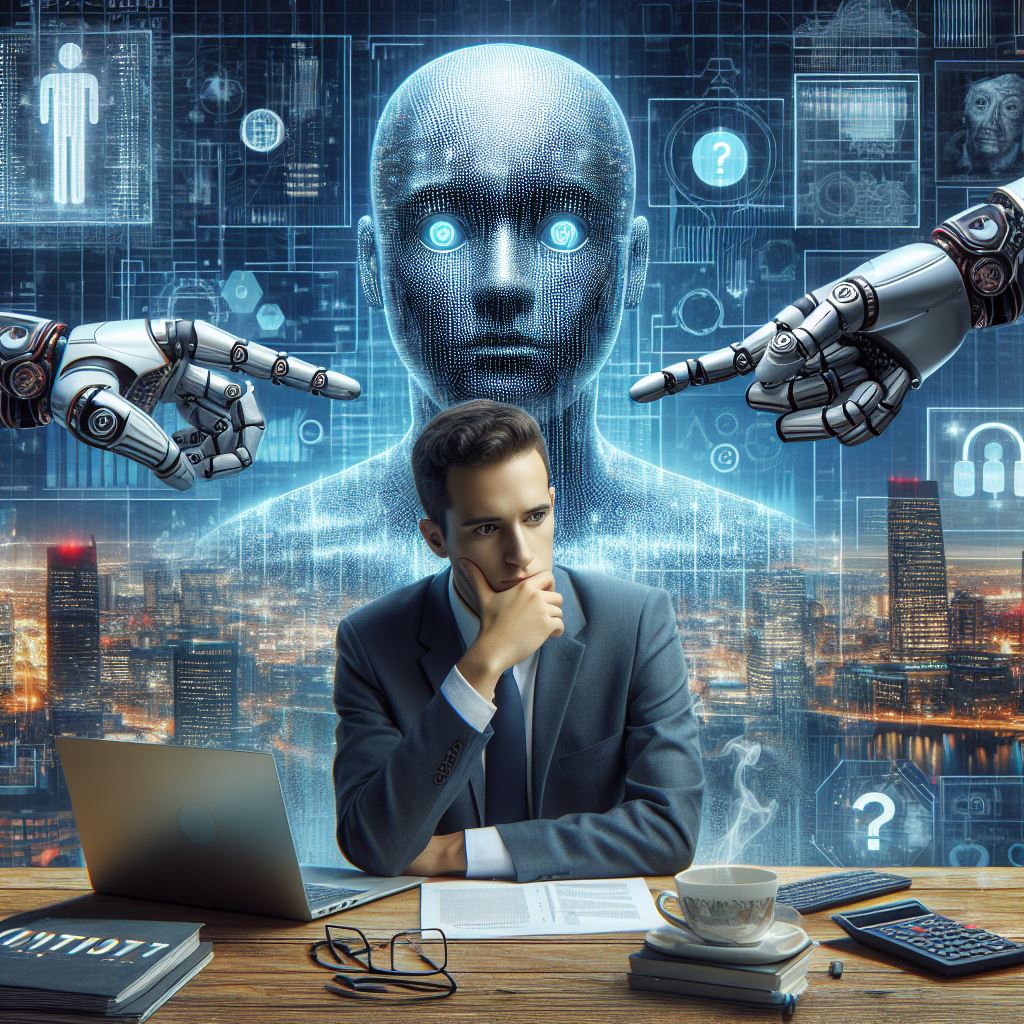In the rapidly advancing landscape of technology, the integration of artificial intelligence (AI) into various aspects of our lives is inevitable. Amidst the promises of increased efficiency and innovation, concerns about job displacement have loomed large. A recent MIT study attempts to shed light on the complex relationship between AI and employment, offering insights that, while reassuring, may leave some lingering uncertainties.
The MIT study delves into the potential impact of AI on the job market, aiming to dispel fears of widespread unemployment caused by automation. The researchers scrutinize historical trends, current developments, and future projections to present a nuanced perspective on the evolving dynamics between AI and human employment.
One of the key findings of the study is the idea that while certain jobs may indeed be automated, new opportunities and roles will emerge in tandem. The researchers argue that the historical pattern of technological advancements creating more jobs than it displaces is likely to persist with the rise of AI. However, this optimistic outlook is tempered by the recognition that the transition may not be seamless, and some individuals may face challenges in adapting to the changing job landscape.
The reassurance offered by the MIT study lies in the belief that human creativity, adaptability, and uniquely human skills are irreplaceable. While AI can excel at repetitive tasks and data analysis, it lacks the nuanced understanding, emotional intelligence, and creativity that characterize many human-centric roles. The study emphasizes the need for education and training programs that equip the workforce with the skills required to complement AI technologies rather than compete against them.
Despite the overall positive tone of the study, the term “uncertain reassurance” encapsulates the ambivalence that many individuals feel about the future of work in an AI-dominated world. The reassurance provided by the study is based on projections and historical trends, but the uncertainty stems from the unprecedented nature of AI’s capabilities and the speed at which technological advancements are unfolding.
One aspect that adds a layer of complexity to the narrative is the socio-economic disparities that may be exacerbated by the adoption of AI. The study acknowledges that certain demographics and industries may be disproportionately affected by automation, potentially widening existing inequalities. As such, while the overall job market may see growth, the benefits might not be evenly distributed.
The personal perspective of individuals in the workforce is also a crucial factor. The study acknowledges that the psychological impact of AI on job security is significant. Even if statistically the job market remains robust, the fear and anxiety stemming from uncertainty can influence individual attitudes and well-being. This psychological dimension is often overlooked in discussions about the impact of AI on employment.
In the context of uncertain reassurance, the study prompts a critical reflection on the role of policymakers, businesses, and educational institutions. Proactive measures are essential to ensure a smooth transition in the workforce, minimizing the negative consequences of AI adoption. Continuous upskilling, reskilling programs, and a focus on fostering a culture of adaptability are crucial components of navigating the evolving job landscape.
As individuals grapple with the implications of AI on their professional lives, it becomes imperative to cultivate a mindset of continuous learning and adaptability. The study’s uncertain reassurance is a call to action rather than a passive acceptance of the status quo. It underscores the importance of personal agency in navigating the complexities of a changing job market.
The MIT study on AI job impact offers a reassuring perspective on the symbiotic relationship between AI and human employment. It emphasizes the potential for new opportunities and the resilience of the job market in the face of technological advancements. However, the uncertainty lies in the nuanced challenges that individuals and society may face during this transition. The psychological impact, socio-economic disparities, and the need for proactive measures underscore the need for a comprehensive and thoughtful approach to ensure that the benefits of AI are shared equitably across society. The study serves as a catalyst for ongoing discussions about the future of work and the role of AI in shaping it.


I don’t think the title of your article matches the content lol. Just kidding, mainly because I had some doubts after reading the article.